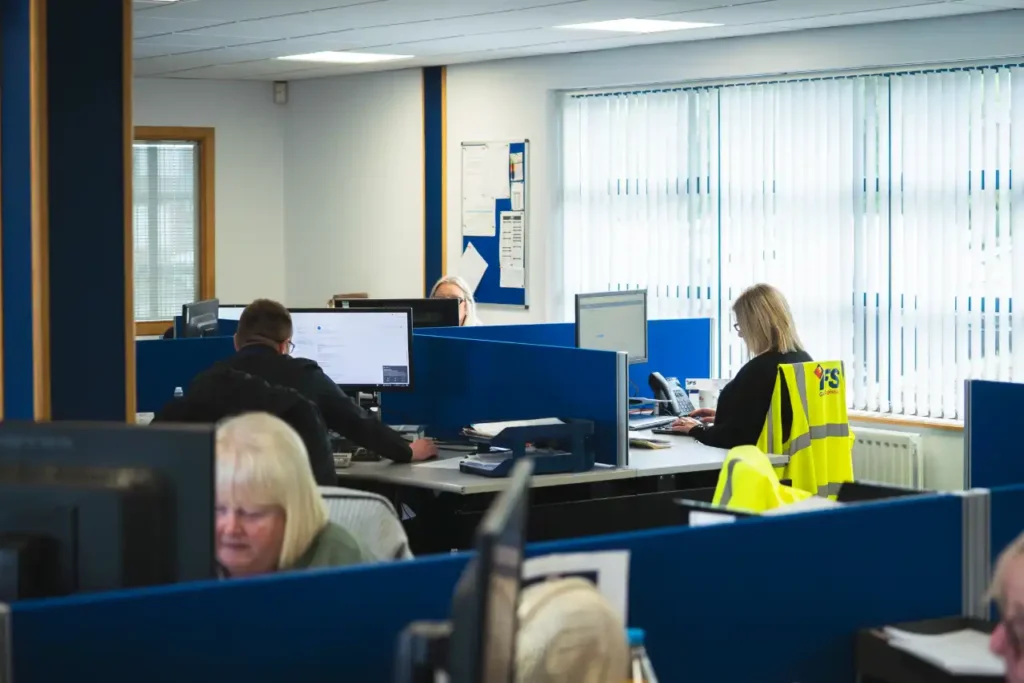Post-Brexit trade between the UK and the EU is no longer frictionless. Increased documentation, changing VAT requirements, and regulatory divergence have made customs compliance a critical aspect of doing business.
A skilled customs brokerage partner, like IFS Group, ensures your goods move smoothly across borders, minimising delays, reducing costs, and helping you avoid fines or confiscations.
1. What Is a Customs Broker?
A customs broker is a licensed intermediary who manages the import and export of goods through customs. Their job includes ensuring that all paperwork, duties, and regulations are properly handled on your behalf.
They work directly with HMRC, the Irish Revenue, and other regulatory bodies to facilitate legal, smooth, and timely movement of goods.

2. When Do You Need a Customs Broker?
You need customs brokerage services if:
- You’re shipping goods across UK-EU or UK-global borders.
- Your goods require tariff classification, licensing, or special inspection.
- You want to avoid delays due to incomplete documentation.
- You lack the in-house knowledge of customs procedures or updates.
Even if you trade solely within the UK, you may need support with bonded warehousing, returned goods relief, or rules of origin certifications.
3. Key Responsibilities of a Customs Broker
A quality customs brokerage service, such as the one offered by IFS Group, typically covers:
- Customs Declarations
Filing required documentation for exports and imports. - Commodity Code Classification
Determining the correct HS code for your goods. - Duties & Taxes Calculation
Estimating and managing VAT, excise, and tariffs. - EORI Registration Support
Helping you obtain or update your Economic Operator Registration and Identification number. - Compliance Advisory
Keeping you updated on UK–EU customs changes, including Northern Ireland-specific protocols.
4. Benefits of Using IFS Group for Customs Brokerage
IFS Group is more than just a logistics provider. With ISO 9001:2015 certification and Authorised Economic Operator (AEO) status, we deliver:
- Faster Customs Clearance – AEO-certified businesses are trusted, and their goods receive priority.
- Fewer Delays at Borders – Correct paperwork and pre-clearance reduce risk of inspection.
- End-to-End Compliance – We monitor legislation updates and ensure your shipments stay legal.
- Peace of Mind – Our customs experts act as an extension of your operations team.
5. Understanding AEO Status & Why It Matters
According to the UK Government, AEO status is an internationally recognised mark of quality in customs operations. It proves that a business’s role in the international supply chain is secure and its customs controls are efficient and compliant.
For IFS Group clients, this means:
- Fewer physical and document-based controls
- Priority treatment when checks are required
- Easier access to customs simplifications and mutual recognition agreements
Learn more via HMRC: https://www.gov.uk/guidance/authorised-economic-operator-certification
6. Common Challenges in UK–EU Customs Brokerage
- Incorrect HS Codes – These lead to wrong duties or legal penalties.
- Missed Documentation – Incomplete or inaccurate invoices or declarations delay shipments.
- VAT Confusion – Cross-border VAT rules differ depending on Incoterms and destination.
- Northern Ireland Protocol – Goods crossing into NI may require different processes via the TSS (Trader Support Service).
7. How to Choose the Right Customs Broker
Look for:
- Experience in UK–EU trade
- Up-to-date compliance knowledge
- Digital tracking and declaration systems
- Trusted certifications (like AEO)
- Clear communication and personalised support
Partnering for Peace of Mind
With trade rules continually evolving, customs brokerage is no longer optional, it’s essential. Whether you’re a manufacturer, retailer, or distributor, having an expert like IFS Group by your side ensures a faster, smoother cross-border experience with fewer surprises.

Frequently Asked Questions
Q1: What is customs brokerage?
A customs broker helps businesses navigate import/export regulations by managing customs clearance, tariffs, and documentation.
Q2: Why do I need a customs broker post-Brexit?
Since Brexit, UK–EU trade requires additional customs declarations and compliance checks. A broker ensures accuracy and reduces delays.
Q3: What does AEO status mean for IFS Group clients?
Authorised Economic Operator status means faster customs processing, fewer inspections, and a higher level of trust with customs authorities.
Q4: Can a customs broker help me reduce shipping costs?
Yes. By avoiding fines, ensuring proper classifications, and speeding up clearance, a broker can help you save time and money.